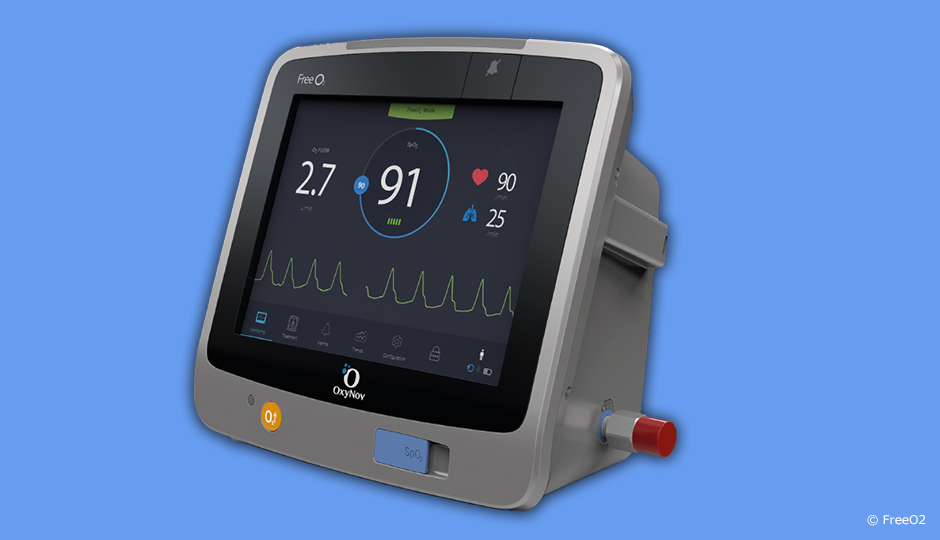
Many hospitalized COVID-19 patients require oxygen, and most hospitals around the world currently rely on flowmeters with a floating ball technology that has been around for over a century. Medical staff must check patients’ oxygenation and manually adjust the flow rate from their bedside, thus increasing the risk of contracting coronavirus. But FreeO2, an innovation by researchers in Québec and France, is poised to revolutionize the procedure by automating it.
A number of studies of over 1 000 patients in Québec, France and Tunisia have demonstrated the efficiency and benefits of FreeO2.
Dr. François Lellouche, critical care physician, associate professor in the Faculty of Medicine at Université Laval and researcher at the Québec Heart and Lung Institute (IUCPQ-UL), along with respirologist and critical care physician Dr. Erwan L’Her in France, invented a device that automatically measures and adjusts a patient’s blood oxygen level second by second.
The experts worked with a team of electrical and computer engineering students at Université Laval to develop the first prototype of FreeO2 in 2009. They then went on to found Oxyno, a clinical innovation company, to improve the prototype and get the device to market.
In the meantime, a number of studies of over 1 000 patients in Québec, France and Tunisia have demonstrated the efficiency and benefits of FreeO2, including better oxygen dosage control, reduced workloads for healthcare professionals, a 30 to 50% reduction in the length of hospital stays and better recovery for patients who receive oxygen. An additional study is currently underway to determine the decrease in the contamination risk.
FreeO2 was first marketed in 2018 in several European countries, including France where nearly 75 devices have been installed in over 15 healthcare centres. It was approved by Health Canada in July 2019 and, since spring 2020, has been tested in 10 Canadian medical centres, including 6 in Québec.
